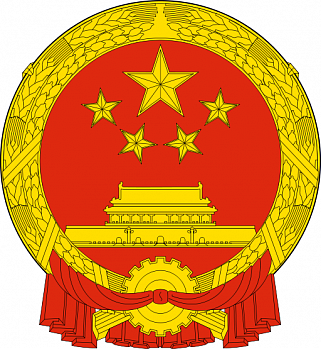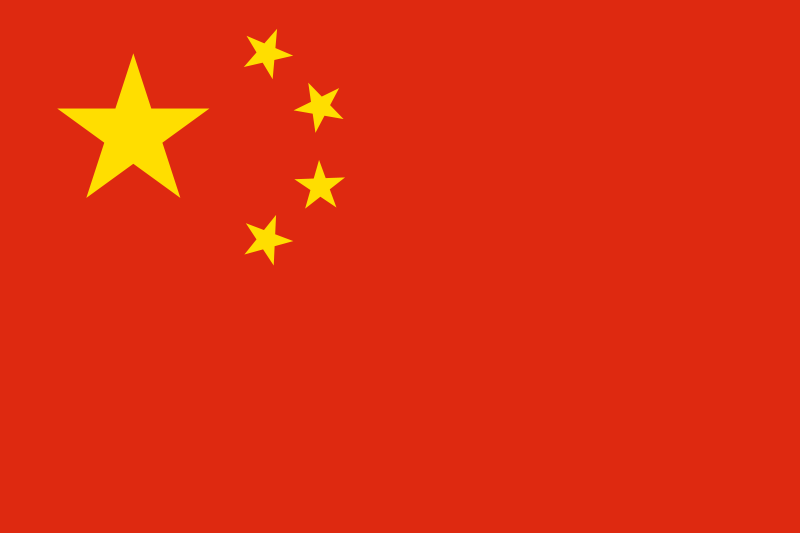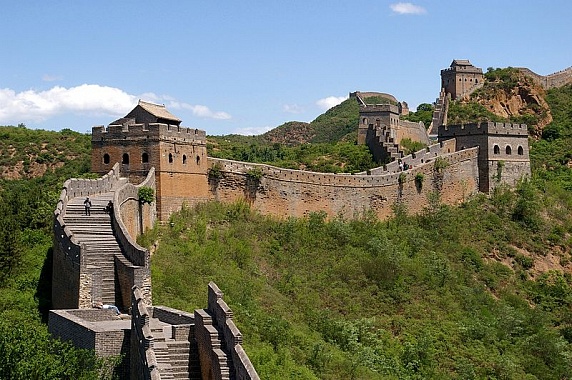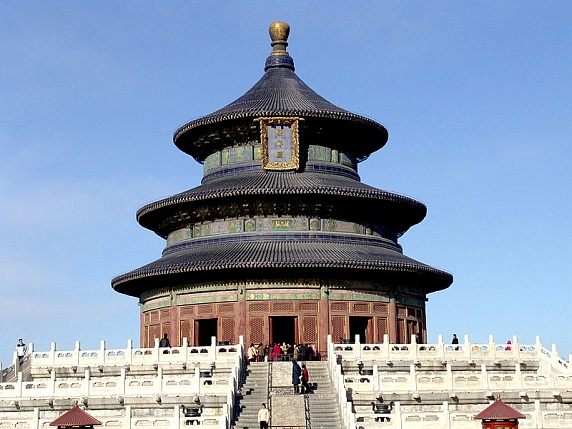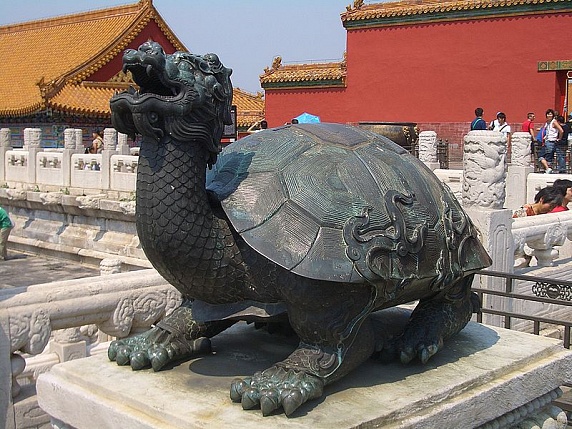 La République populaire de Chine
La République populaire de Chine
INTERVIEW BY THE RUSSIAN FOREIGN MINISTRY OFFICIAL SPOKESMAN ALEXANDER YAKOVENKO GRANTED TO RIA NOVOSTI NEWS AGENCY AND THE CHINESE NEWSPAPER RENMIN RIBAO IN CONNECTION WITH THE FORTHCOMING VISIT TO CHINA BY THE FOREIGN AFFAIRS MINISTER OF RUSSIA IGOR IVANOV
Unofficial translation from Russian
Question: The visit by the Russian Foreign Minister Igor Ivanov to China is to take place on February 26-28. In this connection, could you comment on the state and prospects of the development of relations between Russia and China?
Answer: Our countries are two original civilizations that have exerted a profound influence on the development of mankind. But Russia and China do not only have rich histories, but a particular responsibility to the present and future generations for the formation of a just and secure world. We share a common vision of the principles and ways of building a new world order of which the supremacy of law and respect of the interests of all states must be the foundation. These shared views on the future of international relations lie at the basis of the Russian-Chinese strategic partnership.
The cooperation between our countries also reflects the common interests of the two neighboring states which have a 4,200 kilometer common border. For our country, located on the European and Asian continents, the development of mutually beneficial ties with China meets the tasks of economic upsurge of the regions of Siberia and the Far East, the integration of Russia in the system of regional economic ties in the Asia-Pacific region.
By the beginning of the century we had made a major achievement, a set of agreements on political, military and border issues that turned our border with the PRC into a zone of good-neighborliness, stability and cooperation. A major historical achievement of the two countries is the demarcation of that border on practically the whole of its length. Negotiations on the issue have lasted more than three decades, but success only became possible now, above all, thanks to the new level of relations between the two countries. It remains to settle the issues on two small stretches of the common border. The solution of that task appears to be quite realistic in the current atmosphere of relations. Finally, by now we have created a unique multi-level mechanism of interaction that comprises regular meetings of the heads of state and government, permanent contacts between foreign ministers and the heads of key agencies. Interparliamentary exchanges and region-to-region links are developing. There is hardly an area in which Russia and China do not have an intensive, equal and trusting dialogue. A solid legal basis has been laid for cooperation comprising more than a hundred intergovernmental agreements and in addition as many interregional and interagency agreements. All this shows that it is not by chance that the two sides characterize their relations as "strategic partnership interaction".
Question: What is the importance of the economic component for the development of Russian-Chinese relations in the new century?
Answer: Trade and economic relations between Russia and the PRC in the 1990s have lived through ups and downs. Many feared for their future. But the recent years have produced the long-awaited result: trade is in a steady uptrend. It reached a record 10.67 billion dollars in 2001. And in 2002 the volume of bilateral trade exceeded 11 billion dollars. From these and other indicators we see that a full-fledged relationship is emerging between two rapidly growing economies. The key elements of economic and technological cooperation are the building of the Tianwan power plant in China, the development and preparation of projects to lay the Russia-China oil pipeline and a gas pipeline from the western regions of China to its eastern coast in which Russian companies will take part. Scientific-technical interaction is unfolding, and that includes the creation of joint techno parks, the development of cooperation in the field of communication and information technologies, space and civil aircraft building.
Investment cooperation is a separate issue. Its size is not yet great. There are at present more than 1,100 enterprises with Russian capital with a total amount of contract investment of 250 million dollars. More than 400 enterprises with Chinese capital are registered in Russia and the size of their investments is of the same order. An additional stimulus for expanding investment cooperation could be the inclusion of Russia in the implementation of the program of accelerated development of the western regions of the PRC, which was recently discussed at the 8th Russian-Chinese interregional cooperation forum. Prospects are good for multilateral cooperation, including within the framework of the participation of Russia and China in multilateral cooperation projects in Eastern Asia, above all, on the Korean Peninsula. There is no doubt that the economic trends of the new century influence Russian-Chinese economic relations. The task is to harness them to the economic interests of both countries. To this end we must think about structural modernization of bilateral economic ties.
The preparation of Russia for joining the WTO to which the PRC was admitted at the end of last year became a new factor in trade and economic relations between our countries. We value the position of the Chinese leadership which has welcomed at the highest level the Russian intention to become a member of that international organization and expressed a readiness to render us the necessary support. Corresponding bilateral negotiations between economic agencies are already underway. We assume that the accession of both countries to the WTO will benefit Russian-Chinese trade and economic relations, upgrade their quality, strengthen and further develop them on a mutually beneficial basis.
Question: How is the interaction between Russia and China on the international arena shaping up?
Answer: The partnership between China and Russia is an important factor of maintaining international peace and security, strengthening strategic stability and effectively countering the new challenges and threats. Let me note that this interaction -- in accordance with the historic Treaty on Good-Neighborly Relations, Friendship and Cooperation between Russia and China -- is the legally sealed state policy of both countries. It would be relevant to mention today the effectiveness of our interaction on the international arena. As an example, I would cite the Shanghai Cooperation Organization (SCO) established at the initiative of the heads of our states. Its main tasks include deepening cooperation on issues of peace and international political and economic order based on international laws, democracy and justice. In short, we are talking about the formation of a new culture of interstate communication not only in the APR, but in the world as a whole.
Now, after the signing of the SCO Charter in St. Petersburg, on June 7, 2002, that organization has acquired a legal foundation. Thereby an opportunity has emerged to launch work on organizational building of the SCO and to embark on practical activities.
The SCO is only a particular example of our successful interaction. As noted above, our two countries which are permanent members of the UN Security Council adhere to common approaches to the solution of topical international problems. Let me cite a few examples. Moscow and Beijing are one in their adherence to strict compliance with the principles and norms of the UN Charter. They come out for democratization of international relations, for asserting a multi-polar model of world disposition justly believing that it is only in the framework of multilateral efforts that mankind can solve the global problems facing it and cope with the new challenges and threats. It is our shared conviction that the United Nations and its Security Council should play the central coordinating role in the world order of the 21st century. Russia attaches great significance to the interaction with the PRC on issues of strengthening strategic stability. Our approaches there are also very similar.
On this basis our countries do not only engage in constant exchange of opinions, consult and share information with each other, but together undertake concrete steps to strengthen international security. Thus, in June 2002, the Russian and Chinese delegations submitted to the Disarmament Conference a joint draft of the main elements of an international agreement on preventing the placement of weapons in outer space. In September it was circulated as an official document of the 57th session of the UN General Assembly evoking great positive resonance in the world.
Our countries have a common position on the issues of eradicating international terrorism. The hostage-taking tragedy in Moscow in October of last year highlighted the urgent need to pursue a resolute and uncompromising struggle against that evil. In this connection, the creation of a global system of counteracting the new challenges and threats under the UN aegis takes on added significance. We highly value our interaction with Beijing in the area of counter-terrorism. Proof of the large potential there is the activity of the Russian-Chinese working group to counteract terrorism at the level of deputy foreign ministers with the participation of the representatives of law-enforcement bodies and special services.
Question: What will be the agenda of Igor Ivanov's forthcoming talks in Beijing?
Answer: Igor Ivanov's visit to China and his talks with the Chinese Foreign Minister Tang Jiaxuan will enable us to hold a thorough discussion on a whole range of topical issues in bilateral relations and key international problems, to continue intensive contacts between foreign ministries of the two countries (in 2002 there were eight personal meetings and this year the two ministers have already met three times). The visit will take place on the eve of important personnel changes in the state apparatus of China and will contribute to ensuring the continuity in the Russian-Chinese strategic partnership.
The timetable of Russian-Chinese top-level and high-level contacts this year will be an important item on the negotiating agenda.
Prior to the regular meeting of the two heads of government (Moscow) scheduled for late August and early September there will be meetings of thirteen intergovernmental sectoral subcommissions which will "take stock" of the existing cooperation projects concentrating on the more topical and promising ones.
A separate topic will be the discussion of the prospects for making more effective, and improving the forms and methods of the work of the Committee for Friendship, Peace and Development. The importance of that task derives from the need to strengthen the social base of good-neighborly ties between our countries, deepening humanitarian contacts, including in the fields of education, culture, tourism, small and medium business. Topical international issues will also be touched upon.
Question: What issues?
Answer: First of all, I would like to note that after the signing in July 2001 of the Russian-Chinese Treaty on Good-Neighborliness, Friendship and Cooperation qualitative changes can be traced in the interaction between Russia and China in world affairs: a transition from simple exchange of opinions on international problems to the coordination of external political moves of the two countries on a number of topical themes (issues of strategic stability, non-placement of weapons in outer space, and a number of regional issues) or parallel actions in the world arena.
In that sense Igor Ivanov's visit to China will be an important component part of the work to tighten the foreign policy interaction between the two countries and to lend it greater intensity and depth.
The ministers will exchange opinions on the situation around Iraq. As permanent members of the UN Security Council and strategic partners, Russia and China are maintaining close contacts over the problem of Iraq. This is aided by the consonance in the positions of the two countries. Both Russia and China come out for the settlement of the Iraq problem by political and diplomatic means on the basis of full implementation of the relevant UN Security Council resolutions. The parties deem it necessary to exert their best efforts to prevent a military scenario which would not only have unpredictable consequences for the situation in the region, but would undermine the legal foundations of the existing system of international relations. China has come out in support of the joint Franco-Russian-German initiative.
The situation around the Korean Peninsula will be discussed in the course of the negotiations in Beijing. The parties deem it important for the prospects of peace and security in Northeast Asia to ensure a non-nuclear status of the Korean Peninsula, to preserve the regime of non-proliferation of mass destruction weapons there, to establish constructive and equal dialogue between the US and the DPRK in the interests of solving the "North Korean nuclear problem". Russia and China are ready to assist the settlement and, if necessary, take part in providing international security safeguards for the DPRK and safeguards for other agreements aimed at strengthening peace and stability on the Korean Peninsula.
Question: Surely, Russian-Chinese interaction in the framework of the SCO will be discussed in Beijing.
Answer: Considering that a Shanghai Cooperation Organization summit will be held in Alma-Ata in spring, the ministers will look at a wide range of issues connected, above all, with organizational development of the SCO and the launching of its working mechanisms. Russian-Chinese interaction within the SCO plays the key role in strengthening that young regional organization, in developing cooperation in combating terrorism, separatism, extremism and the narco danger.
The launching of the mechanism of the regional anti-terrorist structure of the Shanghai Cooperation Organization with headquarters in Bishkek will also be discussed.
Russia is committed to intensive multi-level interaction with China within the SCO framework. We believe that it is an organization with a large potential. In addition to the above-mentioned priorities we see great opportunities for it in the economic and humanitarian spheres as well.
February 25, 2003

